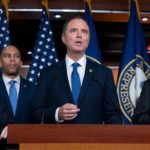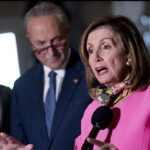By Alan Dershowitz | Fox News
Wednesday’s House Judiciary Committee impeachment hearing squandered an opportunity to educate the public about the criteria for impeaching a president. Instead of each side cross-examining opposing witnesses, Democrats and Republicans mostly threw softballs at their own witnesses. There were a few momentary exceptions, but for the most part what we heard from four legal scholars were prepared lectures that repeated what the witnesses had previously written.
In previous hearings over the years, we have experienced dramatic cross-examination by experienced lawyers that exposed the weaknesses and inconsistencies of witnesses.
It has been said that cross-examination, properly conducted, is the greatest engine for testing truth. Without cross-examination, witnesses simply express their rehearsed views without having them challenged by adversarial questions.
GREGG JARRETT: IMPEACHMENT-OBSESSED DEMOCRATS IGNORE LOGIC AND LAW AS 4 PROFESSORS TESTIFY AT HEARING
Had the Democratic experts been effectively cross-examined, they would have had to justify their contention that the governing criteria for impeachment include abuse of office, corruption, violation of public trust, maladministration, bad conduct, placing partisan interests above national ones, and other vague, open-ended criteria of the kind the framers explicitly rejected.
None of the criteria advocated by the experts appear in the text of the Constitution, which limits the grounds for impeachment to “treason, bribery or other high crimes and misdemeanors.”
These are the necessary but not sufficient conditions for removing a president. In addition to committing one or more of these designated offenses, the person to be removed must have violated the public trust or abused his office. These criteria are in addition to those explicitly set out in the Constitution. They are not substitutes for the constitutional prerequisites for impeachment and removal.
George Washington University Law School Professor Jonathan Turley did a commendable job in raising questions about the dangers of the overbroad Democratic criteria. But presenting an alternative perspective in separate testimony is not as effective as directly confronting witness and demanding answers.
Turley, too, should have been cross-examined about his view that abuse of office can, if sufficiently extreme, be a constitutional basis for impeachment.
He should have asked about the slippery slope: if abuse is sufficient, how can that subjective criteria be cabined to avoid the dangers he correctly pointed to in his compelling testimony.
I simply don’t understand why both sides forwent the opportunity to cross-examine. They each had excellent and experienced counsel, fully capable of cross-examining opposing witnesses. Yet they spent their time throwing softballs at their own witnesses which accomplished nothing.
The small number of cross-examination questions asked by members of Congress were informative but the public would have benefitted more had such adversarial questioning been the norm rather than the exception.
Our nation is deeply divided over the impeachment issue. There is far too little reasoned dialogue and there have been too few constructive exchanges about these different views. Effective cross-examination can force advocates to modify extreme views and to bridge differences. Perhaps neither side wanted that. Their bases demand the uncompromising advocacy of extreme positions. But the American public is entitled to nuance and narrowing of differences.
The clash of experts at the Judiciary Committee hearing did not serve the interests of the American public. The experts were ships passing in the night. Few minds were changed.
Cross-examination might have narrowed differences and changed some minds.
Alan M. Dershowitz is Felix Frankfurter professor of law, emeritus, at Harvard Law School. His latest book is “The Case Against Impeaching Trump.






